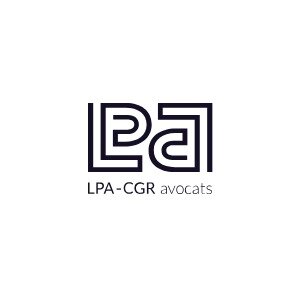Best Tax Increment Financing Lawyers in Morocco
Share your needs with us, get contacted by law firms.
Free. Takes 2 min.
Or refine your search by selecting a city:
List of the best lawyers in Morocco
About Tax Increment Financing Law in Morocco
Tax Increment Financing (TIF) in Morocco is an economic development tool that local municipalities use to stimulate investment in specific areas. TIF allows cities to earmark future property tax gains from a defined area to fund current improvements that will theoretically raise the value of surrounding real estate, enhance infrastructure and public spaces, and stimulate economic growth. Although relatively new in the Moroccan context, TIF has been increasingly utilized to rejuvenate urban areas and support new development projects.
Why You May Need a Lawyer
Legal assistance may be necessary in several key circumstances related to TIF in Morocco. If you are a developer seeking investment opportunities in a TIF-designated area, a lawyer can help navigate the negotiation process with local authorities. Property owners might need legal guidance to understand how TIF affects their tax liabilities and rights. Additionally, municipalities may require legal advice to ensure compliance with national regulations while establishing a TIF district. Disputes over TIF valuations or misuse of funds may also necessitate legal intervention.
Local Laws Overview
In Morocco, TIF-related laws are aligned with broader economic and urban development policies. The legal framework surrounding TIF is influenced by national laws governing municipal finance and property taxation. Key aspects include the criteria for designating a TIF district, the mechanisms for reallocating tax revenues, and the eligible uses of TIF funds. Additionally, transparency and public accountability are emphasized, requiring municipalities to share detailed reports on the impacts and outcomes of TIF projects with stakeholders.
Frequently Asked Questions
What is Tax Increment Financing?
Tax Increment Financing is an economic tool used to promote development in specific areas by diverting future property tax revenues to fund current improvements.
How is a TIF district designated in Morocco?
A TIF district is designated through a collaborative process involving local governments, where certain criteria such as economic stagnation or potential for development are considered.
Who benefits from TIF?
Benefits from TIF arise for developers through incentives for construction, for municipalities through economic growth, and for communities through improved public infrastructure and increased property values.
Are there risks associated with TIF?
Risks include potential mismanagement of funds, financial strain on municipalities if projected tax increments do not materialize, and possible displacement of existing populations due to rising property values.
What legal issues can arise with TIF in Morocco?
Legal issues may involve disputes over TIF district boundaries, disagreements on fund allocation, and challenges related to transparency and accountability.
Can TIF be used for infrastructure development?
Yes, TIF can fund the construction and repair of infrastructure, such as roads, utilities, and public facilities, which are essential for attracting investment.
Do TIF agreements require public participation?
Yes, public participation is often encouraged during the planning stages of a TIF project to ensure community needs and concerns are addressed.
How does TIF impact property taxes?
While initial taxes remain unaffected, TIF captures the incremental increase in tax revenue due to rising property values within the district to fund improvements.
Is TIF a widely used tool in Morocco?
Although not as prevalent as in some countries, TIF is gradually gaining traction in Morocco as a strategic tool for urban development.
What is the duration of a TIF district?
The duration can vary, but TIF districts in Morocco typically have a set time limit, often coinciding with the time needed to repay any associated financing or bonds.
Additional Resources
For further information on TIF in Morocco, individuals may refer to resources provided by the Moroccan Ministry of Economy and Finance and local government websites. Organizations such as the Moroccan Agency for Urban Renewal and Rehabilitation offer insights into urban development strategies. Legal firms specializing in real estate and municipal law are also useful points of contact for specific legal advice.
Next Steps
If you require legal assistance regarding TIF, start by consulting a lawyer with expertise in real estate and municipal law in Morocco. Prepare any relevant documents and articulate your needs or concerns clearly. Legal professionals can provide guidance tailored to your situation, whether it involves investment opportunities, property ownership issues, or resolving disputes related to TIF projects.
Lawzana helps you find the best lawyers and law firms in Morocco through a curated and pre-screened list of qualified legal professionals. Our platform offers rankings and detailed profiles of attorneys and law firms, allowing you to compare based on practice areas, including Tax Increment Financing, experience, and client feedback.
Each profile includes a description of the firm's areas of practice, client reviews, team members and partners, year of establishment, spoken languages, office locations, contact information, social media presence, and any published articles or resources. Most firms on our platform speak English and are experienced in both local and international legal matters.
Get a quote from top-rated law firms in Morocco — quickly, securely, and without unnecessary hassle.
Disclaimer:
The information provided on this page is for general informational purposes only and does not constitute legal advice. While we strive to ensure the accuracy and relevance of the content, legal information may change over time, and interpretations of the law can vary. You should always consult with a qualified legal professional for advice specific to your situation.
We disclaim all liability for actions taken or not taken based on the content of this page. If you believe any information is incorrect or outdated, please contact us, and we will review and update it where appropriate.
Browse tax increment financing law firms by city in Morocco
Refine your search by selecting a city.

















